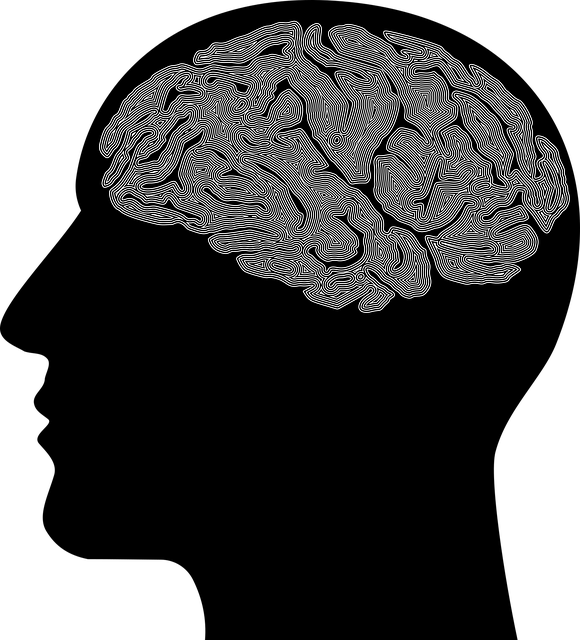Parker Neuro Disorders Therapy offers evidence-based crisis intervention strategies, combining mindfulness meditation techniques with cultural sensitivity. By focusing on neurodisorder-specific needs and teaching emotion regulation, it stabilizes situations, reduces risks, and enhances long-term mental wellness. De-escalation techniques, tailored coping mechanisms, and resilience building empower individuals to manage crises effectively and lead balanced lives, making Parker Neuro Disorders Therapy a standout resource for distress relief.
In times of crisis, effective intervention strategies are paramount for providing immediate support and long-term recovery. This article explores a comprehensive approach to crisis intervention, offering valuable insights from the perspective of Parker Neuro Disorders Therapy. We delve into understanding the foundational principles, unlocking key strategies for mindful responses, and providing practical techniques for de-escalation. Additionally, we examine post-crisis care and prevention methods, emphasizing the importance of building resilient coping mechanisms.
- Understanding Crisis Intervention: A Foundation for Effective Support
- Parker Neuro Disorders Therapy: Unlocking Strategies for Mindful Response
- Practical Application: Techniques to De-escalate and Stabilize Individuals in Crisis
- Building Resilient Coping Mechanisms: Post-Crisis Care and Prevention Strategies
Understanding Crisis Intervention: A Foundation for Effective Support

Understanding Crisis intervention is a cornerstone for providing effective support during moments of intense distress or upheaval. It involves a swift and strategic approach to help individuals navigate challenging situations, such as those often experienced by individuals with neurodisorders, like Parker Neuro Disorders Therapy emphasizes. By recognizing the unique needs and circumstances of each crisis, practitioners can tailor interventions that promote stability, reduce risk factors, and foster recovery.
Mindfulness Meditation, as a component of many mental wellness podcasts and production series focused on cultural sensitivity in mental healthcare practice, has gained prominence as a valuable tool in crisis intervention. This practice helps individuals cultivate present-moment awareness, regulate emotions, and develop coping strategies that can mitigate the impact of a crisis. Embracing cultural sensitivity is paramount in this context, ensuring that interventions are respectful, inclusive, and responsive to diverse backgrounds, enhancing the overall effectiveness of support provided during critical moments.
Parker Neuro Disorders Therapy: Unlocking Strategies for Mindful Response

Parker Neuro Disorders Therapy offers a unique approach to crisis intervention, focusing on empowering individuals with strategies for mindful response. This therapeutic method recognizes the complex interplay between neuro disorders and emotional regulation, aiming to enhance mental wellness and improve mood management. By integrating evidence-based practices, the therapy facilitates effective communication strategies, enabling clients to navigate challenging situations with greater resilience.
The core principles of Parker Neuro Disorders Therapy revolve around teaching individuals to recognize triggers and develop coping mechanisms tailored to their specific neurological needs. Through mindful practice, patients learn to respond rather than react during crises, fostering a sense of control and empowering them to manage their emotions effectively. This proactive approach not only benefits current crisis situations but also equips individuals with lifelong tools for maintaining emotional balance and promoting overall mental wellness.
Practical Application: Techniques to De-escalate and Stabilize Individuals in Crisis

In situations where individuals are experiencing a crisis, such as heightened anxiety or trauma, applying effective de-escalation techniques is paramount for stabilization and support. Trained professionals, including those at Parker Neuro Disorders Therapy, utilize a range of strategies to create a safe space and foster calm. One key approach involves active listening, where the therapist mirrors the individual’s language and emotions, demonstrating empathy and understanding. This technique helps to normalize the person’s experience, reducing feelings of isolation.
Additionally, cultural sensitivity in mental healthcare practice plays a crucial role. Therapists are trained to adapt their interventions based on cultural backgrounds, ensuring that de-escalation methods resonate with the individual’s unique context. By incorporating cultural references and understanding potential triggers related to background or beliefs, professionals can offer tailored trauma support services, enhancing the effectiveness of crisis intervention strategies.
Building Resilient Coping Mechanisms: Post-Crisis Care and Prevention Strategies

Building resilient coping mechanisms is a key aspect of post-crisis care and prevention strategies. After an individual experiences a crisis, it’s essential to provide support that fosters adaptability and recovery. This involves both short-term interventions and long-term mental health strategies. Parker Neuro Disorders Therapy emphasizes the Mind Over Matter principles, focusing on empowering individuals to manage their emotions and thoughts effectively. By integrating Self-Care Practices into daily routines, people can enhance their ability to cope with future challenges.
Mental Health Education Programs Design plays a pivotal role in this process. Equipping individuals with knowledge about stress management, emotional regulation, and resilience building equips them to navigate crises more adeptly. These programs not only educate but also create a supportive community where sharing experiences and learning from one another becomes a powerful tool for recovery. Through such comprehensive approaches, individuals can develop the skills necessary to prevent future crises and lead fulfilling lives.
Crisis intervention is a multifaceted field, and by integrating strategies from Parker Neuro Disorders Therapy, professionals can provide more effective support. This article has explored key aspects, from understanding crisis intervention to practical techniques for de-escalation and post-crisis care. By fostering resilient coping mechanisms, we can help individuals navigate and overcome challenging situations. Embracing these strategies not only benefits those in immediate crisis but also contributes to long-term mental well-being, as evidenced by the success of Parker Neuro Disorders Therapy.














